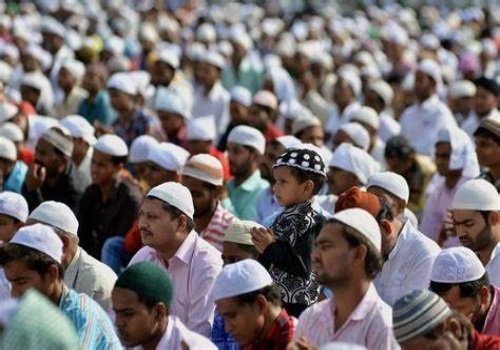By Anubha Khan
In recent years, the rise of Islamophobia has become a concerning trend in western countries especially at the behest of some organizations with ulterior motives, thereby fueling discrimination and prejudice against Muslims. It is alleged that Muslim individuals were denied job opportunities or promotions solely based on their religious identity, while others experienced bullying and exclusion in schools due to stereotypes perpetuated by the travel ban (by Trump administration) and Islamophobic rhetoric. West based organizations like Indian American Muslim Council (IAMC) has often blamed India of practicing Islamophobic policies. This has necessitated a comparison between Islamophobia in west and condition of Muslims in India. While India too has witnessed communal incidents, a comparison between Islamophobic sentiments in the west and the treatment of Muslims in India shows the level of security and equality enjoyed by any average Indian Muslim.
In contrast to Islamophobic west, it can be argued that discrimination with religious minorities in India is much lower than in the United States and other western countries. This is partly due to the historical presence of Muslims in India and the long standing tradition of religious coexistence. Additionally, Indian society’s emphasis on communal harmony and respect for diversity has played a crucial role in minimizing Islamophobia. However, it is important to note that pockets of discrimination and prejudices still exist, highlighting the need for continuous efforts to promote acceptance and understanding. One example of India’s religious coexistence is the city of Lucknow, which is known for its rich Islamic heritage and vibrant Hindu-Muslim culture. The city is home to several historic religious sites, such as the Bara Imam bara and the Bhool Bhulaiya, which attract visitors of all faiths. The locals have embraced this diversity and actively participate in each other’s festivals, such as Hindus celebrating Bid and Muslims participating in Diwali festivities. This inclusive environment has fostered strong interfaith relationships and has been a testament to the power of tolerance and harmony.
Indians have come to understand and respect each other’s beliefs, creating an atmosphere where individuals can freely express their religious practices without fear of discrimination. This coexistence has not only enriched the cultural fabric of the country but also serve as a shining example for other communities around the world striving for peaceful religious integration. Education plays a crucial role in combating Islamophobia, with schools and institutions promoting accurate and unbiased information about Islam and its followers. Additionally, media outlets should strive to present a fair and balanced portrayal of Muslims, challenging stereotypes and dispelling misconceptions. Ultimately, the fight against Islamophobia requires collective efforts from individuals, communities, and Governments worldwide to create a more inclusive and accepting society for all. Those organizations utilizing the soil of western countries to propagate the concocted narrative of Islamophobia in India should first introspect from within before pointing fingers towards others.
(The author’s Fellow in Journalism and Francophone Studies, Jamia Millia Islamia. His views are personal. It has nothing to do with public records management.)




